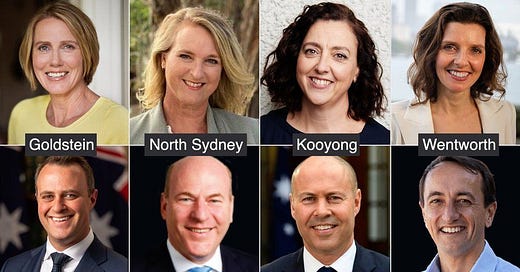Australian democracy? We fixed it
But if we want to entrench these changes, campaign finance reform is essential
Note from Tim Dunlop: As promised, I am commissioning articles for this newsletter, and the latest one is below, by Jane Gilmore. More are in the pipeline. Your subscription helps pay for the publication of these articles and all the work published here. Thank you.
Jane Gilmore was the founding editor of The Kings Tribune (2007-2014). She is now a public speaker, consent educator, & freelance journalist. Her book Fixed It: Violence and the Representation of Women in the Media, was published by Penguin in 2019.
Keep reading with a 7-day free trial
Subscribe to The Future of Everything to keep reading this post and get 7 days of free access to the full post archives.





